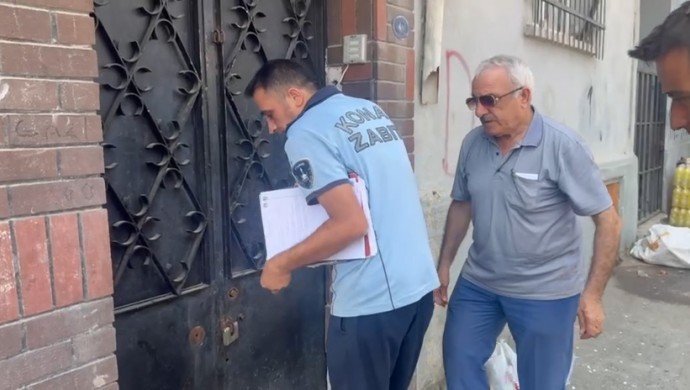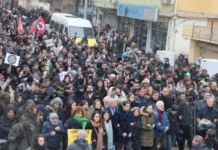Municipal officials in the western city of Izmir on Thursday sealed the entrance of a Kurdish language and culture association that has come under growing pressure from Turkish authorities, the Mezopotamya news agency reported.
The Avesta Language and Culture Research Association, based in Izmir’s Konak district, had its premises shut down by Konak Municipality officers. The closure came two days after a police raid on the organization, allegedly due to the group’s lack of an operating license. While local officials cited licensing issues in the shutdown, Kurdish groups and civil society observers say the move is politically motivated.
““This happened when peace is being talked about: They sealed the door of our association,” co-chair of the association Ramazan Kaygısız said. “In truth, what was sealed today was not just our door, but the Kurdish language itself.”
The shutdown came amid renewed public discussion in Turkey about resolving the decades-long conflict with the outlawed Kurdistan Workers’ Party (PKK), which is designated as a terrorist organization by Turkey and its Western allies. Earlier this year, the group announced it would end armed activities following a call by its imprisoned leader, Abdullah Öcalan. Turkish officials described the move as a potential step toward lasting peace. But Kurdish civil society groups argue that state pressure on language and cultural institutions has continued, raising concerns about the sincerity and scope of any normalization efforts.
The association has offered Kurdish language courses in the Kurmancî and Dimilkî dialects since 2018, serving thousands of students both in-person and online. Its stated mission is to preserve and promote Kurdish language and culture through education, research and public events.
But Avesta has increasingly faced legal and political pressure. Earlier this year, co-chair Ali Yalçınkaya was indicted on terrorism-related charges. The case drew sharp criticism from human rights groups, who said the charges criminalize basic educational work.
“This is not about an operating license,” Kaygısız said. “It is about silencing Kurdish civic initiatives.”
Kaygısız urged human rights organizations and other civil society groups to speak out against the move. “This is not just our fight,” he said. “It’s a fight for the right to speak one’s language.”















